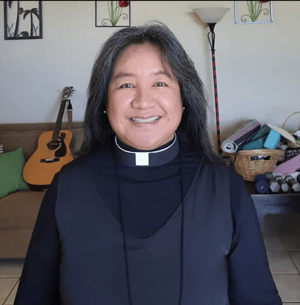Luke 18:9–14
In this Sunday’s Gospel, Jesus compares two individuals in the temple. One person views himself as good and righteous, believing his personal faults to be minimal. He sees his rote adherence to piety as enough to justify himself before God and neighbor, and he lives his life in a posture of judgement towards others. The other man, a tax collector who would certainly have been deemed a despised member of society in Jesus’s time, understands himself to be deeply flawed. He feels the sting of conviction in his own heart and humbles himself before God and neighbor.
 As Irene Maliaman notes in her retelling of this passage, Christians today should take heed of the parable’s lesson. She asks us to consider “a model Christian and a criminal [who] went to church to pray. Without hesitation, the Christian entered the church, dipped his fingers in the stoup that holds the holy water, made the sign of the cross, genuflected, and headed straight to his favorite pew in front of the altar. It is obvious that he knew what he was doing and was familiar with the place. Looking up, he lifted up his hands and prayed, ‘Thank you, God, for blessing me and making me unlike those corrupt and miserable sinners who cannot tell good from evil, who live their lives separate from you, who do not come to church, like that criminal over there. I read the Bible daily, I never miss church, I pray for the less fortunate, I fast twice a week, I advocate for justice and human rights, I support Episcopal Relief & Development and other non-profit organizations that are helping the poor, and I give my tithes.’”
As Irene Maliaman notes in her retelling of this passage, Christians today should take heed of the parable’s lesson. She asks us to consider “a model Christian and a criminal [who] went to church to pray. Without hesitation, the Christian entered the church, dipped his fingers in the stoup that holds the holy water, made the sign of the cross, genuflected, and headed straight to his favorite pew in front of the altar. It is obvious that he knew what he was doing and was familiar with the place. Looking up, he lifted up his hands and prayed, ‘Thank you, God, for blessing me and making me unlike those corrupt and miserable sinners who cannot tell good from evil, who live their lives separate from you, who do not come to church, like that criminal over there. I read the Bible daily, I never miss church, I pray for the less fortunate, I fast twice a week, I advocate for justice and human rights, I support Episcopal Relief & Development and other non-profit organizations that are helping the poor, and I give my tithes.’”
Maliaman reminds us of the dangers of considering ourselves righteous in our own context. As Christians, we are called, like St. Paul notes in his letter to the Philippians, to “in humility regard others as better than yourselves.” God, who searches our hearts and motivations, calls on us to enact a posture of repentance. In such a posture, we open ourselves to God in full awareness of who we are. We can then experience God’s mercy and kindness as a gift of grace.
—Summerlee Staten
